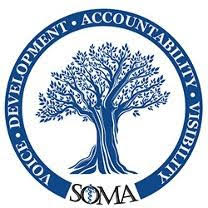› Forums › Spring 2020 Resolution Forum › Resolution: S-20-17: IMPLEMENT ADULT INTELLECTUAL & DEVELOPMENTAL DISABILITIES EDUCATION WITHIN OSTEOPATHIC MEDICAL SCHOOL CURRICULA DURING DIDACTIC YEARS AND CONTINUED MEDICAL EDUCATION
- This topic is empty.
-
AuthorPosts
-
-
April 8, 2020 at 8:27 am #3094
Valerie Lile
Keymaster1 WHEREAS, “developmental disabilities” are defined as a group of lifelong conditions due to an
2 impairment in physical, learning, language, behavioral areas, or self-care before the age of 221; and3 WHEREAS, between 2009 and 2017, the overall prevalence of any developmental disability among
4 children age 3 to 17 years in the United States was 16.93%1; and5 WHEREAS, the mean age of death of a person with an intellectual disability has improved from 19
6 years in the 1930s to 66 years in the 1990s, and continues to improve2; and7 WHEREAS, the longer life expectancy of adults with intellectual and developmental disabilities creates
8 a growing challenge for healthcare providers to address their needs later in life3; and9 WHEREAS, adults age 60 and older with intellectual and developmental disabilities is increasing
10 dramatically with an estimated 850,600 individuals in the community in 2010 to nearly 1.4 million by
11 2030 as a result of increased life expectancy3; and12 WHEREAS, the goal of healthcare for patients with developmental disabilities is to improve their well-
13 being, function, and participation in family and community2; and14 WHEREAS, there is a dire need for improvement in the care of adult patients with developmental
15 disabilities, in regards to, but not limited to, health maintenance, sexual health, pain assessment,
16 psychiatric and behavioral concerns, and end-of-life-care2; and17 WHEREAS, 40% of internal medicine physicians do not feel comfortable caring for patients with
18 chronic diseases of childhood-onset secondary to lack of familiarity with the literature, lack of training
19 with this population, and lack of coordination among specialists4; and20 WHEREAS, people with intellectual and developmental disabilities are transitioning from
21 institutionalized settings to local community residences resulting in significant health-related
22 challenges5; and23 WHEREAS, community physicians have not been adequately trained to provide medical care to
24 patients with intellectual and developmental disabilities as this subpopulation exhibits unique medical
25 needs and significant health disparities5; and26 WHEREAS, results from physician educational seminars for a clinical improvement program in the
27 treatment of the intellectual and developmental disabilities population reveal statistically significant
28 improvements in self-assessed competence and clinician knowledge5; and29 WHEREAS, AOA-sponsored conferences since January 1, 2019, did not discuss specific topics
30 regarding the care and treatment of the adult intellectual and developmental disabilities population6;
31 and32 WHEREAS, AOA Resolution H211-A/18 “encourages osteopathic medical schools to develop and
33 implement curricula on the care of people with developmental disabilities6;” now, therefore be it34 RESOLVED, that the Student Osteopathic Medical Association (SOMA) encourages Commission on
35 Osteopathic College Accreditation (COCA) to incorporate adequate levels of disability-focused
36 education regarding adult intellectual and developmental disabilities into medical school curricula of
37 didactic years, and be it further38 RESOLVED, that SOMA encourages the American Osteopathic Association (AOA) to incorporate
39 continued medical education regarding intellectual and developmental disability care for adults during
40 AOA-sponsored conferences, such as OMED and ROME.Explanatory Statement
Education aimed at increasing the knowledge base of common issues affecting the vulnerable population of adults with intellectual and developmental disabilities would increase physician comfort and improved patient care. From the surge in transitioning to community homes to the small number of physicians trained to provide adequate care, adults with developmental disabilities have slipped through the cracks in routine healthcare. These deficits are especially seen in rural and medically underserved communities. Along with the lack of research, no such formal guidelines, training, or commitment to adults with intellectual and developmental disabilities is present in the United States. With this population’s continued expansion, current physicians in training will be faced with the growing challenge of providing adequate care to this unique population despite lack of formal education during medical school and years-beyond.
References
- Zablotsky, B., Black, L., Maenner, M., Schieve, L., Danielson, M., Bitsko, R., Blumberberg, S., Kogan, M., Boyle, C. (2019). Prevalence and trends of developmental disabilities among children in the United States: 2009-2017. Pediatrics, 144(4): 1-11. Retrieved from https://pediatrics.aappublications.org/content/144/4/e20190811.
- Kripke, C. (2018). Adults with developmental disabilities: a comprehensive approach to medical care. American Family Physician, 97(10):649-656. Retrieved from https://www.ncbi.nlm.nih.gov/pubmed/29763271?dopt=Abstract.
- Heller, T. (2017). Service and Support Needs of Adults Aging with Intellectual/Developmental Disabilities. https://aadmd.org/sites/default/files/Bridging%20Aging%20and%20Intellectual%20%282%29testimony%20final103017.pdf
- Hunt, S., Sharma, N. (2013). Pediatric to adult care transitions in childhood onset chronic disease: Hospitalist perspectives. Journal of Hospital Medicine, 8(11): 627-630. Retrieved from https://www.journalofhospitalmedicine.com/jhospmed/article/128085/pediatric-adult-care-transitions
- Bartkowski, J.P., Kohler, J., Escude, K.L., Xu, X., & Bartkowski, J. (2018). Evaluating the impact of a clinician improvement program for treating patients with intellectual and developmental disabilities: the challenging case of Mississippi. Healthcare (Basel), 6(1): 3. Retrieved from https://www.ncbi.nlm.nih.gov/pmc/articles/PMC5872210/
- American Osteopathic Association Events. (2019). https://osteopathic.org/about/aoa-events/
- American Osteopathic Association 98th Annual House of Delegates Meeting. (2018). http://policysearch.wpengine.com/wp-content/uploads/H211-A2018-DEVELOPMENTAL-DISABILITIES-CURRICULUM-ON-THE-CARE-OF-PEOPLE.pdf
Submitted by:
Jacqueline Chung, OMS II – Pacific Northwest University of Health Sciences COM
Aubrey Euteneuer, OMS II – Pacific Northwest University of Health Sciences COM
Arashpreet Gill, OMS II – Pacific Northwest University of Health Sciences COM
Jenna Seeley, MA, OMS II – Pacific Northwest University of Health Sciences COMAction Taken:
Date:
Effective Time Period: Ongoing
-
-
AuthorPosts
- The forum ‘Spring 2020 Resolution Forum’ is closed to new topics and replies.
